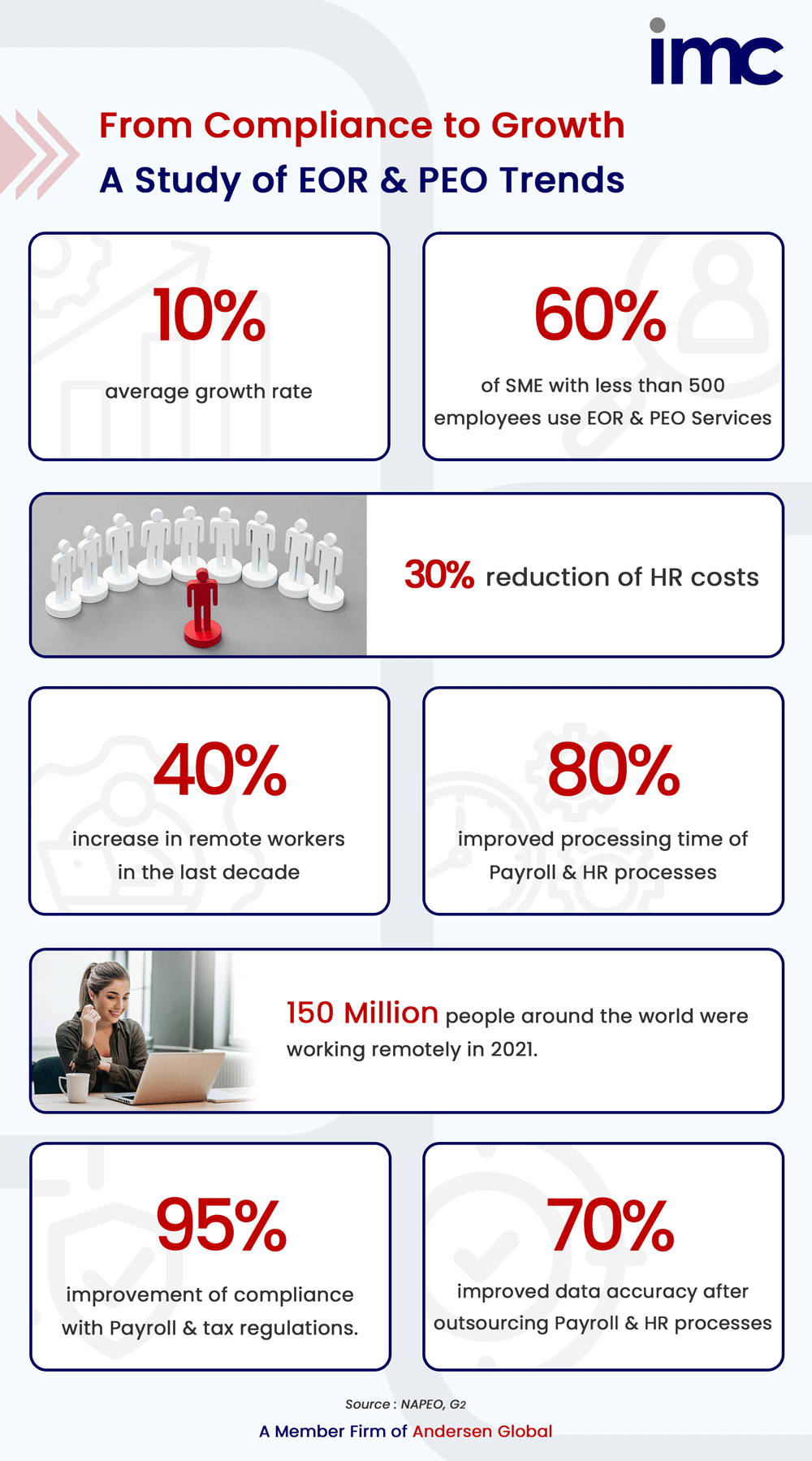
- NEWSLETTER, GLOBAL
- February 28, 2023
International Benefits
Incentives that Drive Hiring and Employee Retention
Successfully recruit and retain exceptional talent amidst fierce competition in the hiring market.
Gain a Competitive Hiring Advantage with Comprehensive Rewards Packages
As an employer, it’s essential to recognize that attracting and retaining top talent requires more than just offering competitive salaries. In today’s highly competitive job market, job seekers are looking for comprehensive benefits packages that meet their unique needs and desires. To become an employer of choice, you need to offer rewards that go above and beyond the standard offerings of most global employers of record.
One way to achieve this is by working with experts who can help you craft comprehensive, market-specific benefits packages that are tailored to your employees’ needs. These experts can help you understand the unique needs of your workforce and design benefits that will excite job seekers and increase workforce loyalty.
Comprehensive Coverage:
Provide your talented employees with everything they need to feel valued, including comprehensive benefits such as full health coverage, robust pension plans, and life insurance, among others
Elite Specialization:
Count on our team of experts to provide you with guidance on the optimal rewards solutions, while also providing quick and localized support to both you and your global workforce.
Global Governance:
Rest assured that your benefits packages comply with local statutory requirements across countries, providing you with peace of mind
Value-Based Pricing:
Access exclusive rates available only to large-scale providers, allowing us to offer you top coverage at competitive prices.
Boost employee satisfaction and retention rates by offering supplemental benefits in addition to mandatory ones
Providing statutory benefits such as medical, life, pensions, and time off is mandatory for employers in a given country. However, we take it a step further by offering your talent additional supplemental benefits that go beyond the legal requirements. By doing so, we aim to make your employees feel appreciated, valued, and motivated, which can give your company a competitive edge in attracting and retaining top talent.
More than just a vendor - we're a dedicated partner invested in your company's success
Just as you work hard to take care of your employees, we at IMC Group are dedicated to providing you and your talent with the highest level of support in the industry. Our team of experts is committed to offering assistance on everything from compliance-related inquiries to rewards strategies and more. With our localized approach, we are here to help at every step, providing the guidance you need to succeed.

- NEWSLETTER, GLOBAL
- February 28, 2023
One of the simplest methods for providing global equity awards and stock options
IMC Group collaborates with top legal advisory firms to assist you in providing globally compliant and customized equity plans and stock options. By delivering consistent packages regardless of location, you can attract qualified candidates and ensure that your talented employees remain loyal to your organization.
Integrated Solutions:
We take care of everything, from researching grant options to providing support with withholding rates, payroll processing, supplemental reporting, and other related tasks.
Global Adherence:
Our in-house experts collaborate closely with globally recognized consultants to guarantee that your equity awards conform to local regulations and standards.
Tailored Compensation Plans:
We simplify the process of granting various types of awards, such as stock options, stock appreciation rights, restricted stock units, and phantom awards, making it effortless for you to issue them.
Rapid Response Services:
Get access to competitive pricing on top-notch coverage by leveraging rates that are exclusively available to large-scale providers.
Grant Worldwide Equity with Regional Customization:
Offering equity awards and stock options to foreign employees should not be challenging. You can obtain detailed, country-specific recommendations on equity packages through our comprehensive resource center. Moreover, our experts are available to provide fast and localized support whenever you require additional assistance.

- Article, Global
- February 20, 2023


- Article
- February 17, 2023
According to the Monetary Authority of Singapore (MAS), the assets under management in Singapore have seen a substantial increase over the decade from 2012 to 2021, reaching SGD 5.4 trillion. This marks a three-fold growth from SGD 1.6 trillion in 2021 and recorded a 16% increase in assets in the 2021 itself.
Most of this growth came from outside of Singapore, of which about one-third really is from Asia-Pacific countries. Singapore’s reputations as are stable and well-regulated financial centre has earned it the nickname “Switzerland of the East”. The country’s favourable business environment and its position as a hub for wealth management have made it an attractive destination for investors around the world.
In early 2020, the Monetary Authority of Singapore (MAS) introduced the Variable Capital Company framework, which was designed to attract investment funds, including Single Family Offices. This piece of legislation has proved to be a crucial step towards enhancing the investment landscape in the country.
What is a Single Family Office?
A Single Family Office (SFO) is a private company that provides comprehensive wealth management services for a single wealthy family. It offers a wide range of services, including investment management, estate planning, tax planning, financial planning, asset protection, philanthropy, and family governance.
How to set up single family office in Singapore?
What are some things that you might need to consider before setting up a Single Family Office?
As the world’s second-largest group of billionaires resides in Mainland China, the high-net-worth (HNW) and ultra-high-net-worth (UHNW) sector in Asia has grown by 7.9% despite the Covid-19 pandemic. This growth has presented new challenges for HNWI`s and UHNWI`s in terms of wealth management, estate planning, succession, budgeting, and philanthropy.
Traditional fund management may not be equipped to handle the complex and diverse financial portfolios of HNWI`s and UHNWI`s while meeting their needs. This is where the concept of a Single Family Office comes in as a new solution for wealth management for these individuals.
What attracts ambitious entrepreneurs to set up a Customized Single Family Office solutions in Singapore?
Making it an attractive destination for both local and foreign investors, in addition to its favourable business environment, Singapore is known for its high standard of living, excellent healthcare system, and top-notch educational institutions. The city-state has a multicultural population, making it a melting pot of different cultures, traditions, and cuisines. This contributes to a rich and diverse cultural experience for its residents and visitors.
Furthermore, the government of Singapore has made significant investments in infrastructure and technology, which has helped to make it one of the most technologically advanced countries in the world. This has led to the growth of numerous high-tech industries such as IT, biotechnology, and engineering.
What are your Goals for setting up a Single Family Office?
The objective of setting up a Single family office should always be defined and clear, but the primary goal would be is to secure the wealth and legacy of future generations. To achieve this, it requires a comprehensive wealth management strategy that takes into account not just the immediate future but also long-term planning.
Overall, an increasing number of Single Family Offices in Singapore are taking advantage of Singapore’s favourable laws and regulations in setting up their Entity, to build a legacy that goes beyond not just financial growth but accumulation of wealth.
IMC is the trusted Single Family Office advisor and supports services that are available to assist with setting up a strategic office in Singapore. The company’s wealth management services can help you in providing tailored investment management, estate planning, trust and fiduciary services, tax planning, financial planning, asset protection, and philanthropy, all aimed at ensuring the continued prosperity of your family.
Our family governance experts can also assist you in creating a vision and mission statement for your family office, one that outlines your goals and aspirations, whether it’s in finance, technology, property, or environmental protection.

- Article, Global
- February 14, 2023
When expanding globally, it can be overwhelming to navigate the plethora of acronyms and jargon in the world of international employment. But don’t let technical language hinder your progress. In the interest of simplifying things, we will clarify the most perplexing term – Professional Employer Organization.
The definition of PEO?
A PEO is a company that provides comprehensive human resources services to businesses. These services can include recruitment, payroll processing, benefits management, other administrative tasks, and assistance with local employment laws and tax compliance.
PEO shares the HR responsibilities and liabilities. PEO takes over the entire range of HR functions such as employee benefits, compensation and payroll administration, workers’ compensation, and employment taxes.
This is where the Confusion Arises…
The terms “Professional Employer Organization” (PEO), “Employer of Record” (EOR), “Global Employment Organization” (GEO), and “Global PEO” are often used interchangeably, but there are some variations depending on your location.
In the United States, the term PEO is typically used and refers to a co-employment model where both the client company and the PEO have rights and responsibilities as an employer.
The client company manages the employee’s day-to-day duties, while the PEO handles legal employment and personnel-related functions like payroll. One important distinction to keep in mind is that co-employment requires the client company to be a legally registered entity in the country where the employees are based.
Is a Professional Employer Organization (PEO) the right choice for my business?
PEOs are essential for companies looking to expand internationally, as the process of global expansion involves navigating various administrative, regulatory, and financial challenges, which can be overwhelming.
Navigating the different employment regulations in various countries, regions, or states for non-resident companies can be a significant challenge for international expansion, especially for those unfamiliar with concepts such as 13th-month or 14th-month payments.
A Professional Employer Organization (PEO) can handle all the challenges that come with expanding internationally. Businesses are required to have a legal entity while the PEO handles the entire HR responsibilities, manage benefits such as health insurance, help with recruitment and stay up to date on local regulations, allowing companies to focus on their core business operations.
In addition, companies that work with a PEO tend to experience faster growth, lower employee turnover rates and have a decreased risk of failure in the international business world.
If you want to accelerate your growth plans and hire employees in a different state or country, partnering with a PEO will be a beneficial decision for your global expansion journey. To learn more about our international PEO services, contact us today.

- NEWSLETTER,U.A.E
- February 8, 2023
New visa reforms and ease and simplicity of doing business are attracting a growing number of foreign investors for new business setup in Dubai UAE.
As per a report, the UAE government has initiated several measures to make it easy for overseas investors to relocate their business into the country and this will, in all likelihood, result in higher FDI inflow into its economy.
A PRO Services in Dubai UAE recently reported about rising inquiries relating to new visa options for setting up a business in the emirates duly suggesting that the country is all set to witness more HNIs and millionaires this year.
Another UAE-based business consultancy firm reported receiving an increasing number of inquiries and clarification about new visa options including golden visa, investor visa, and freelance visa as many overseas investors are showing interest in joining the UAE’s tempting business community.
Besides new visa options, the UAE government’s business-friendly and forward-looking policies, a stable economy and incentivized tax systems are also becoming major factors in attracting global investors to the country’s soil.
There are reports that the UAE government is seriously considering rolling out a series of new policies to make the country’s business landscape far more attractive for foreign investors and entrepreneurs. It is learned that the government is committed to further simplifying the process of business licensing by removing other bureaucratic procedures that are still in existence.
Building Special Economic Zones (SEZ) is another new policy that the government is expected to introduce during 2023. These SEZs would likely be designed to cater to sector-specific industries and businesses including financial services, technology, and manufacturing.
Newly planned SEZs would also offer sector-specific incentives to further attract foreign investors for new company formation in Dubai UAE.
As per reports, even Covid pandemic couldn’t destabilize the country’s growing trend of new business setups that further display the strong resilience of UAE’s economy. There are also government pushes to enhance the SMEs’ participation in the economy as evidenced by increased disbursement of funds from the Emirates Development bank for the SMEs. Furthermore, the Dubai SME initiative is also providing increased networking opportunities for sustainable growth in the SME space.
Today, several sectors including real estate, e-commerce, hospitality and tourism, transportation, and logistics are booming in the UAE and industry and investment experts believe that more foreign investments are going to be poured into these sectors in the years to come. Experts are also confident that the government’s relentless push to drive technology and sustainable finance would open the doors for tremendous business growth opportunities in the coming years.
Amongst all Arabian nations, the UAE has been ranked first and 19th worldwide in attracting FDI inflows during 2022 as the World Investment Report issued by the United Nations Conference on Trade and Development (Unctad) suggests.
Industry experts forecast that FDI inflow in the UAE during 2023 could be huge, attracting a major share of USD 66 billion in potential FDI inflows into the Middle East, North Africa, and Pakistan (Menap) as the country is considered the most favored destination for investment by global investors and entrepreneurs.
The Institute of International Finance also reported that UAE had attracted an estimated $22 billion in FDI inflows during 2022 due to its business and visa reforms.

- NEWSLETTER,SINGAPORE
- February 8, 2023
Introduction
Singapore and the United Kingdom (UK) recently signed a Memorandum of Understanding (MoU) to strengthen bilateral cooperation on fintech and sustainable finance to optimize the regulation of finance in today’s digital era. The MoU was signed on November 25, 2022, at the seventh UK-Singapore Financial Dialogue held in Singapore.
Singapore is the leading fintech hub and sustainable finance power in Asia today and beginning in 2021, more than 40 percent of fintech companies in Southeast Asia were based in Singapore, underscoring its role as ASEAN’s financial center with a growing number of Singapore Company Incorporation from the foreign investors.
The recent MoU has been built upon the UK-Singapore FinTech Bridge which was launched in May 2016 in London during the sixth UK-Singapore Financial Dialogue by HM Treasury and the Monetary Authority of Singapore (MAS). The Bridge is structured by a regulatory cooperation agreement signed between the Financial Conduct Authority (FCA) and the MAS and enables the regulators to refer fintech firms that meet set eligibility criteria to their counterparts and sets out the process of sharing and using the information on financial services innovation by the regulators.
Key Features
Sustainable Finance
Collaboration on Sustainable finance was discussed between the two countries within the context of the Paris Agreement to limit global warming.
The two countries agreed to work together on transition finance such as boosting international consistency in the design and disclosure of transition plans.
The two countries agreed to continue working with international organizations to implement a global reference for sustainability-related disclosure standards including climate-related financial disclosures.
The requirement for a globally consistent framework for nature-based disclosures was also agreed upon, including collaboration on enhanced comprehension of the potential for natural degradation to create financial risks.
Fintech
Opportunities and challenges in the crypto and blockchain markets were also discussed and besides sustainable finance, the two countries agreed to collaborate on the fintech space.
An immediate need for a safe digital ecosystem of assets was agreed upon by both countries. The risks associated with volatile crypto assets and financial stability were discussed including the progress made on strengthening consumer protection and regulating stablecoins. Both agreed to work in association with international bodies to help stabilize digital assets.
Other fintech developments in recent times were also discussed including e-wallet caps and digital banking in Singapore.
At the beginning of 2022, Singapore and the UK signed the Digital Economy Agreement aiming at advancing digital trade by standardizing e-payments and e-invoicing systems and encouraging enhanced participation from the UK-based SMEs with foreign company registration in Singapore. Moreover, in late 2020, Singapore and the UK also signed a Free Trade Agreement, as the UK’s first FTA with a Southeast Asian country. The free trade agreement reduced non-tariff barriers, reduced tariffs, and provided improved market access in the financial services sector.
The Takeaway
In all likelihood, the UK-Singapore FinTech Bridge will build the stage for increased cooperation on fintech and sustainable finance over the coming years. The Singapore-UK partnership is likely to strengthen more with Singapore leading the fintech and sustainable finance in South East Asia.

- NEWSLETTER,U.A.E
- February 8, 2023
Status of Regulation
Registration
The CT registration will be independent of the VAT registrations and all businesses across all the emirates would be required to register even if the taxable income is below the threshold of Dh375,000 or exempt.
Over the next few months, the Federal Tax Authority (FTA) will send out an ‘invitation to register’ to select businesses. There may not be any penalty relating to registration once the businesses register before the due date for tax return submission which is nine months from the end of the relevant financial year. Unlike VAT, there is the scope of deregistration from CT.
Avoid a AED 10,000 fine by Meeting UAE's Corporate Tax Deadlines. Contact us for Expert Tax Compliance Guidance and Protect your Business.
Individuals
Free Zones
Qualifying Group
Anti-abuse Rules
Small Business Relief
International Taxation
Documentation and Accounting
Taxable income will be computed from the books of accounts and the businesses do not need to prepare a separate set of books for tax purposes. Global accounting standards, such as IFRS, are acceptable, and for small businesses, simplified accounting procedures may be allowed.
All businesses need to retain and maintain accounting records for a minimum period of seven years even when a business is not taxable, claimed exemption, or did not pay tax in a particular year to facilitate future tax assessments.

- NEWSLETTER,SINGAPORE
- February 8, 2023
Introduction
Business activities related to Mergers and Acquisitions (M&A) have made a strong comeback in Singapore after some slowdown during the Covid pandemic. As business confidence is gradually restored and the economic outlook becomes positive, growth-oriented businesses started looking for profitable M&As.
What are the key regulations relevant to M&A in Singapore?
The key regulations relevant to M&A in Singapore are as under.
- Singapore Companies Act 1967-ACRA
- Singapore Insolvency, Restructuring and Dissolution Act 2018 (IRDA)- Ministry of Law
- Singapore Securities and Futures Act 2001 (SFA)- MAS
- Singapore Code on Takeovers and Mergers (Takeover Code)- MAS
- Listing Manual of the Singapore Exchange Securities Trading Limited
- Singapore Competition Act 2004- Ministry of Trade and Industry
How are Private and Public M&A Transactions Structured?
Private and public M&A transactions in Singapore are normally structured either as a purchase of the issued shares of the company or as an acquisition of the business including the assets and liabilities of the company.
What are the main differences between the various structures?
Generally, the acquisition of shares becomes less cumbersome as compared to a business or asset sale as this involves the transfer of title to each of the assets from the target company to the purchaser. Moreover, a company’s assets and liabilities can be available in different forms including land, leases, premises, leases, book debts, intellectual property, etc. requiring different methods of transfer to pass title for each type of asset.
What factors typically influence the selection of structure?
Maximization of profit is the major factor followed by less time and resources requirements for due diligence and optimized tax consideration.
What documents are required during the preparatory stage of an M&A transaction?
A non-disclosure or confidentiality agreement before the start of the due diligence process and preparation of the transaction documents. A memorandum of understanding on key terms and conditions of the transaction may also be a document sometime.
What is Break Fee in M&A?
A break fee is a penalty paid by the party who breaks the M&A deal. Break fees are usually permitted in Singapore, although they are rare in the case of private acquisitions.
What is the code of takeovers and mergers in Singapore?
The Takeover Code needs all parties to a takeover or merger transaction to volunteer full and prompt disclosure of all relevant information. There must not be any statements made that may mislead shareholders or the market. Any breach of the takeover code may result in sanctions imposed by the Securities Industry Council, Singapore.
Is there any time limit for negotiations or due diligence?
For private M&A transactions, there are no time limits for negotiation or due diligence. In public M&A transactions, while there are no maximum periods specified for negotiations or due diligence, the Takeover Code however stipulates a strict timetable on the actual takeover process that must be fulfilled.
What are the means of acquisition of a publicly traded company?
The acquisition of a publicly traded company in Singapore is done through general offers, schemes of arrangement, reverse takeovers, and voluntary de-listings.
Are hostile takeovers common in Singapore?
Hostile acquisitions are allowed in Singapore, however, are uncommon.
Who makes decisions on behalf of a target company and what are shareholders’ roles?
In both public and private M&A transactions, the target company’s board of directors is the key decision-making body.
In a private M&A transaction, specific shareholder approval is not usually needed unless the transaction specifically requires shareholder approval as per Singapore legislation or a shareholders’ agreement.
Shareholders in a public M&A transaction will be able to either accept a takeover offer in respect of their shares or cast their vote to approve a scheme of arrangement.
What roles do employees and other stakeholders play?
Generally, employees have no statutory right to be consulted or otherwise to participate in the management of companies in Singapore.
Conclusion
M&A activity in Singapore has strong government support. The Singapore government announced enhancements to the Enterprise Financing Scheme – Merger & Acquisitions (Scheme) from 1 April 2022 to 31 March 2026 during budget 2022. The Scheme supports enterprises to scale and expand through M&A and provides financing for the acquisition of local or overseas targets. The government also encourages businesses to embark upon complementary businesses and emerging sectors and new-age businesses.

- NEWSLETTER,U.A.E
- February 8, 2023
Introduction
Over the last decade, the UAE has greatly Internationalized itself and become one of the most prominent global business hubs elevating its economic diversity. The government has rolled out a series of laws to move towards an innovation and knowledge-driven economy with an increasing awareness of the importance of intellectual property rights as the backbone of the country’s economy.
Major changes have been made in the intellectual property space including an expansion of trademark laws, revisions to patent laws, stronger copyright and industrial design rules, and greater protection of personal data.
Meta verse has become the hot topic in the UAE intellectual property rights in 2022 and will continue to be the buzzword in 2023 as well. Dubai has already set up an independent regulator for virtual assets, the Virtual Assets Regulatory Authority “VARA”, and announced its Metaverse Strategy in July 2022 as the country focuses on becoming a global hub and one of the world’s top 10 metaverse economies and plans to generate more than 40,000 jobs in the virtual world by 2030 through R&D in Web 3.0 technologies and applications in important sectors including tourism, education, retail, health care, and judiciary.
The Recent Legal and Regulatory Updates
Update 1: Cabinet Decision No. 57/2022 on Executive Regulations of the Federal Decree-Law No. 36/2021 on Trademarks issued on 22 June 2022 to supplement and refine the procedural framework for trademark matters. The most significant changes are accession to the Madrid System of WIPO, and the transfer of cancellation actions to the authority of the Trademark Office instead of the local courts to hasten filing cancellation within 90 days of filing. removal of time limitations on cancellation actions against bad faith filings and doing away with the need to publish new applications, renewals, and assignments in two local newspapers.
The other important areas addressed in this update include Multiclass Applications, removal of Trade License requirements for UAE Applicants, an extension of the period for filing grievances, an extension of the timeline of amendments, trademarks renewal, geographical indications, attachment on trademarks, etc.
Impacts on Businesses
The new regulatory update streamlined the UAE trademark practices in line with international practices and enhanced the ease of doing business.
Multiclass applications though initiated only stipulated the procedural framework and as of date, are not an option for trademark owners upon filing. However, based on the provisions, the UAE is expected to adhere to a multiclass filing system within the next twelve months.
Update 2: Cabinet Decision No. 47/2022 the Implementing Regulation of Federal Decree-Law No. 38/2021 on Copyrights and Neighboring Rights came into force on 11 May 2022 to further refine the copyright registration, importation, and license procedures in the UAE.
The new Copyright Law and implementing regulations together have made several substantial reforms to copyright practices in the UAE. The copyright owner has been made the employer as opposed to the creator, based on the relationship or contract. Other reforms included the establishment of the fair use doctrine, Smart Applications, Compulsory Licensing, Assignment of benefits of a Copyright License, Customs Seizure, and Protection of Privacy of Photography And Audio/Visual Recordings.
Impact on Businesses
Work for hire doctrine is expected to bring relief for many business owners, saving both time and money. The Default Ownership of Copyright In Architectural Designs in the new Copyright law could be an important game changer to the industry which will set essential limitations on the architectural works, ability to reutilize their designs, and/or enforce their rights against third parties.
Update 3: Cabinet Resolution No. 6/2022 regarding the Executive Regulations Of Federal Law No. (11) of 2021 regarding the Regulation and Protection of Industrial Property Rights was enforced in November 2021 followed by the implementing regulations which were issued on 10 February 2022. The new law and implementing regulations updated the legal framework that applies to patents and industrial designs, with changes to the preparation, prosecution, and enforcement of patents and designs.
The most important changes include the introduction of speedy examinations for patents, conversion of a utility certificate into a patent, extending the period of a utility certificate from 10 years to 20 years, ensuring the protection of Layout designs of integrated circuits, establishing the conditions for converting a utility certificate into a patent and documenting the process of examination, the process of mandatory license requests and the process for registration of layout design for integrated circuits. The new law also significantly raised the penalties related to patent infringement and removed the requirement of Arabic translation during patent registration.
Impact on Businesses
With these updates in regulatory requirements, inventors and applicants can now obtain protection for their intellectual property in the UAE more easily. The speedy examinations will promote enhanced availability of protection.
The Takeaway
The UAE is increasingly becoming the most coveted international financial and business hub and will continue to develop and substantiate its legal IP framework to attract foreign investment.
A Member Firm of Andersen Global
- 175+ Countries
- 525+ Locations
- 17,500+ Professionals
- 2350+ Global Partners


















 IMC Group
IMC Group